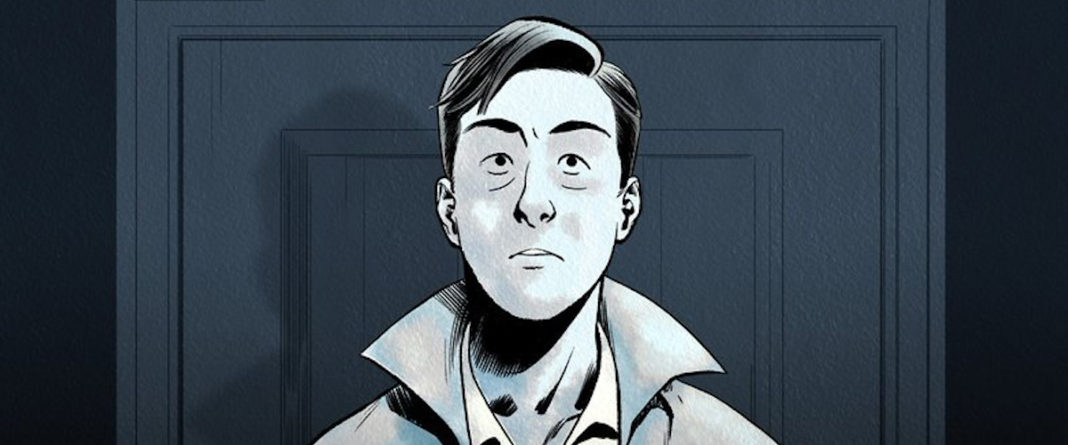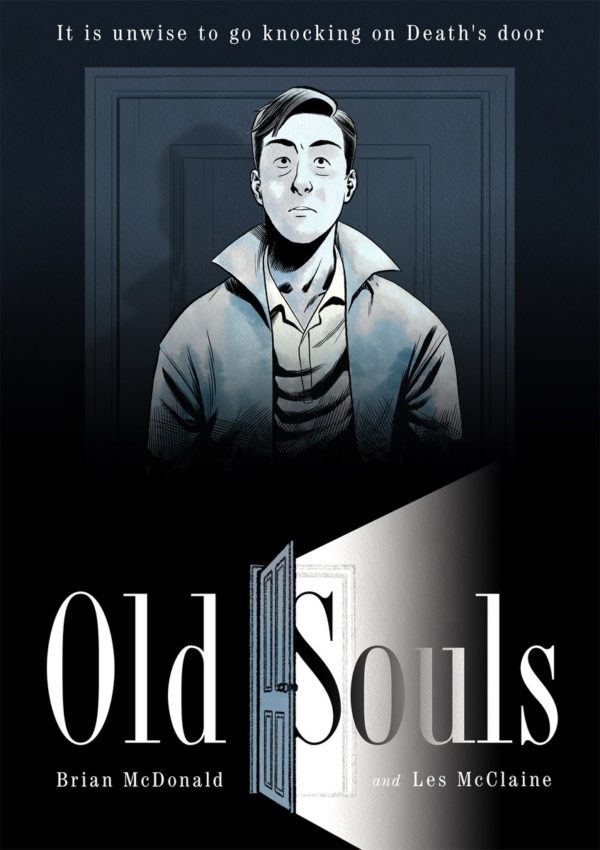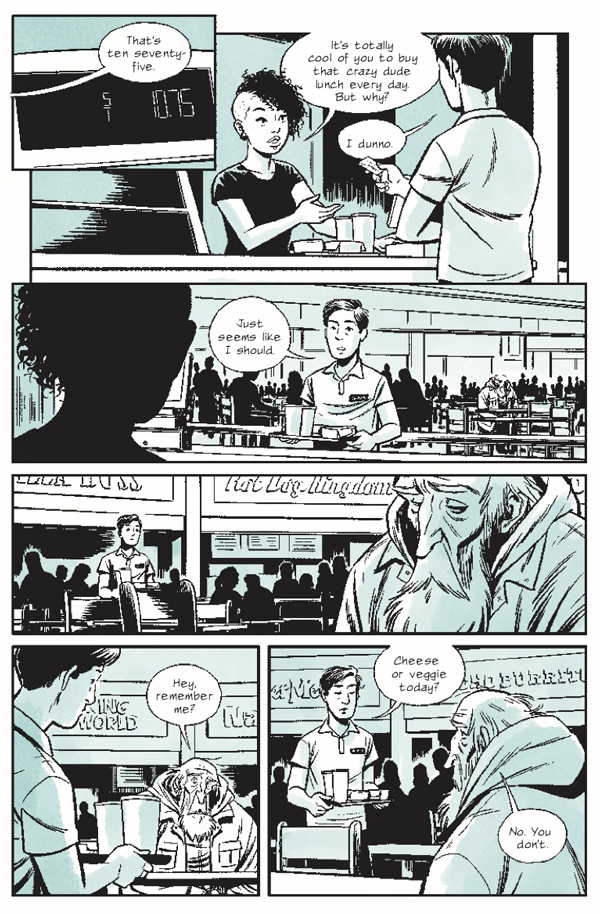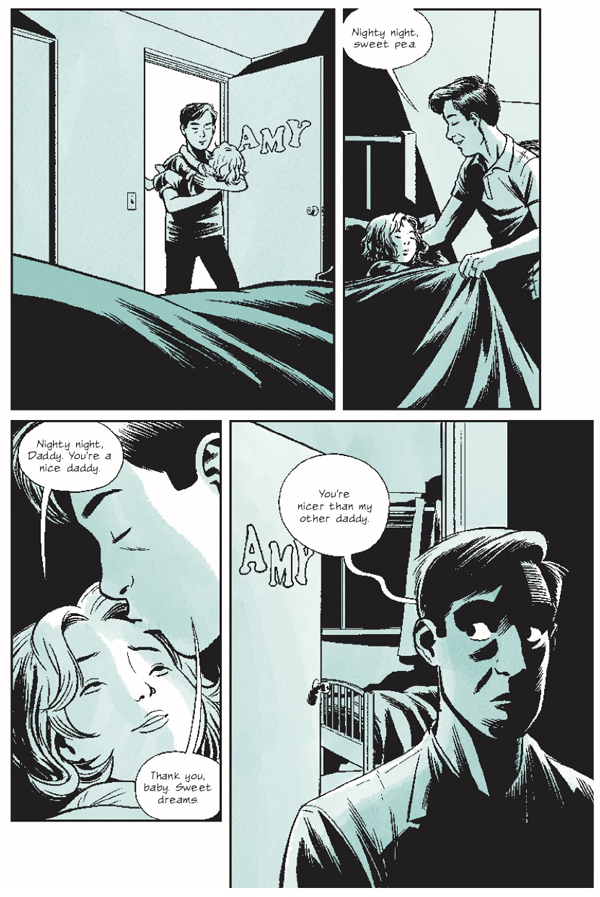Old Souls
Written by Brian McDonald
Illustrate by Les McLaine
First Second
I think the reason I never warmed up to the idea of reincarnation as a spiritual belief worth having — and I say that with the caveat that I don’t really have spiritual beliefs — is that, as a kid, there seemed to be a lot of cheesy horror about it. Cheesy now. To a kid who only encountered the ads, it all seemed terrifying, as if finding out you were reincarnated would only lead to horrifying difficulty in your life and it was best to never have that knowledge. If you had an itch you could not scratch, best to just learn to live with it and not ask where that itch came from.
Four decades later and Old Souls isn’t doing anything to change my mind. The old lessons still seem to apply.
When the story opens, it’s in the middle of a traumatic event at a mall, with a parent frantically looking for his lost child. As it turns out, it’s not this specific story or this specific character that is at the center of Old Souls, but the rather some of the ideas it portrays — the separation of families, the mission of a parent to protect a child.
It’s during this that we meet Chris, who works at an electronics store. Chris is a pretty normal white guy, has a wife and a daughter, they’re saving up for a house, but his world is about to change. He’s struck up a casual friendship with a homeless guy who lurks around the mall food court, buying him lunch every day. Its a compulsion that Chris can’t quite explain, but his young daughter’s memories of a different life begins to sparks some mysterious images in Chris’ own mind that leads him to open up more to the homeless man and down a path of obsession that leads him straight into the face of trauma during one of his lives.
For Chris, the obsession and the trauma create a spiral, the direct result of racism in the past, when Chris was a purveyor of systematic racism. The grim lesson he learned in that life comes with great personal cost that consumes his current life.
Memory is a way that we honor ourselves by focusing on the good things we have done — or, at least, the things that make us happy. But it’s also the way we punish ourselves when we fixate on incidents that cement themselves as trauma in our psyche. But there’s a third way, though it sometimes feels it’s a rare one — the memories that we try to push away of guilt.
The way memory works is, the more you go over an event in your head, the easier you remember the details over the years. But sometimes what you call memories are really adjustments to what actually happened. The memories that cause guilt — or at least represent something you did that are undeniably wrong — are often skirted over, and so the details of the actual circumstances dissipate or are reframed through your brain’s reconstruction of the fractured pieces. I think that’s what happens a lot these days when someone brings up an incident or statement from years ago as an indictment of the person now — whether it’s right or wrong, it’s always up against the way human emotion and human memory conspire to create psychological cushions for the person being accused.
That’s what Old Souls reminds me of. People zoom through the exciting moments of their reincarnations, dizzy from the possibilities, and they even embrace traumas. But the awful things they do become closed off behind a door that they make harder and harder to access as they continue to be reborn. They don’t want to know. And that’s pretty human. Few people ever want to know.
This dynamic is typical of how we approach cultural memory, which is very much what Old Souls is about. Chris’ past lives involve multiple points of dark moments in history — the Japanese occupation of China, the Viet Nam War, the Spanish Inquisition. The one that causes him extreme trauma places him as a slave owner in Virginia. But it’s only a personal loss that sends Chris careening into present trauma. He’s far more concerned about the personal toll he believes his role as a slave owner brought than the actual evil of owning human beings.
This makes Old Souls a much more difficult work than it originally appeared to be, because by the end of it, there is an aspect to Brian McDonald‘s story that implies that in Chris’ reaction to his past lives he still haven’t quite learned the wider lessons they teach, only the personal ones. It also implies that atrocities are cultural manifestations of human weaknesses and humans can during a lifetime find themselves on either side of the conflicts and still not learn the lesson that needs to be learned.
But Old Souls also suggests that the root to curing the larger ills might come from focusing on the smaller ones, and from having empathy. In its cosmology, we have been everyone, and the universal demand is that we use this experience for wider perspective. It is not that hard to recognize dehumanizing atrocities for what they are without a personal stake, and it is not all that demanding to stand against them, refuse to act them out. You may just be a white guy with a dumb job at the mall, struggling to build a life for your family, but that shouldn’t make it impossible for you to see the struggles of others or to sympathise with the traumas they cause.







